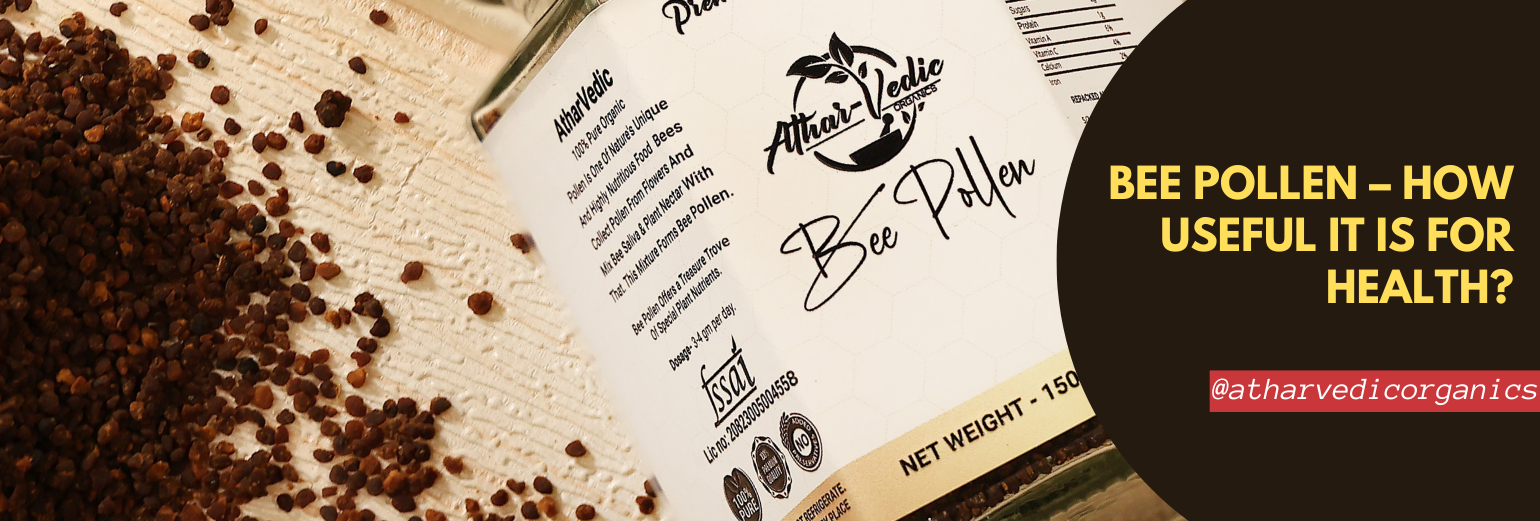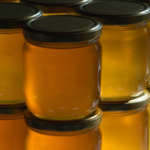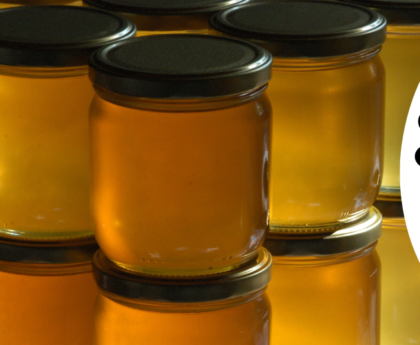What Is Bee Pollen?
Bee pollen is the flower pollen collected by honey bees while they suck nectar from flowers. It is carried in a pollen basket attached to their back legs and brought to the beehive. Bee pollen serves as a source of protein for the growth and development of larvae. Pollen acts as a male reproductive agent responsible for fertilizing (pollination) a plant. Bees mix pollen flakes with nectar to form granules. Overall, bee pollen is primarily a combination of flower pollen, enzymes, nectar, and honey, making it a superfood with enormous health benefits.
The Different Types Of Bee Pollen Depend upon The Following Factors:
The quality and types of bee pollen rest on the geographical location, climatic conditions, type of soil, types of bees and plant source.
Plants That Bees Collect The Nectar And Pollen
There are several plants that honey bees travel to for about a mile to 5 miles to collect the nectar and pollen.
The variety of the pollen depends upon the different flower plants that honeybees forage for the nectar and pollen.
The Plants That Bees Mostly Forage In India Are:
1. Mustard 2. Litchi 3. Eucalyptus 4. White clover 5. Jujube 6. rosewood 7. Sunflower 8. acacia 9. coriander 10. Karanj 11. Jamun 12. Ajwain etc
The Process Of Extracting The Bee Pollen
The pollen trap is attached at the entrance of the bee box or hive by beekeepers in the morning and collected from all the bee boxes in the evening.
When the honey bees re-enter their hive after foraging with nectar and pollen, the pollen trap scrapes the pollen into a tray, aiding in bee pollen collection.
The pollen trap is designed to not harm bees as they pass through it into the hive.
What is that Bee Pollen Contains which Makes it a Superfood?
Bee pollen contains valuable nutritional sources and they come in an equal proportion:
- Vitamins
- Minerals
- Amino Acids
- Proteins
- Hormones
- Enzymes
- Fats
- Antibiotics
It also has an excellent nutritional profile with 250 biologically active and healthy substances.
Bee Pollen as Health Care Supplement
Bee pollen is in growing demand in the domestic and global market for its medicinal values by the health care community in India and abroad. This demand has provided a great opportunity for beekeepers to earn extra income alongside Honey harvesting. The reason for its increasing demand and reputation is that it is loaded with many healthy nutrients necessary for humans, including nearly 250 active healthy substances. With changing lifestyles, more and more consumers are seeking a balanced diet, making bee pollen a valuable supplement.
Health Benefits:
1. Protects from Chronic Disease and Free Radicals
Bee pollen includes antioxidants, such as flavonoids, quercetin, kaempferol, carotenoids and glutathione.
Human studies have revealed that these antioxidants present in bee pollen combat and reduce chronic inflammation, eliminate harmful bacteria and infection. It also combats the development of tumours including type 2 diabetes and cancer.
2. It Controls the Risk of Heart Ailment by Reducing High Blood Lipids and Cholesterol
The bee pollen supplement reduces the risk of bad cholesterol in the blood. It also protects lipids from oxidizing, because if the lipid oxidises it clogs the blood vessels leading to an increased risk of heart disease.
3. It May Boost Liver Functioning and Helps in Protecting from Toxic Substances
The liver is an important organ that breaks and removes toxins from the blood.
The bee pollen increases the liver antioxidant defence power and removes more waste products like malondialdehyde and urea, from the blood.
Overall, the effect of bee pollen promotes good liver healing after liver damage and its antioxidant protects the liver from various toxic substances like a drug overdose.
4. Bee Pollen Reduces Inflammation
The bee pollen has a history of healing swelling and inflammation. Its antioxidant quercetin lowers the production of omega-6 fatty acid, like arachidonic acid.
5. Effective in Wound Healing and Preventing Infection
Bee pollen antioxidants and anti-inflammatory properties greatly reduce the infection and heal the wounds faster.
It also has antibacterial property which helps in healing scrapes, cuts, abrasions and burns.
6. Improves Metabolism and Longevity
Bee pollen contains vitamin C and bioflavonoid which helps in enhancing iron absorption. It also helps in muscle growth, increases metabolism and longevity due to its high-quality protein and amino acids.
7. A Good skin Soother
Many topical products contain bee pollen because it has amino acids and vitamins which protects, regenerate cells and rejuvenate skin.
8. Bee Pollen for Weight Loss
The enzymes and co-enzymes present in the bee pollen are considered to be very important and play an important role in the bee pollen to help reduce weight gain.
9. Bee Pollen for Infertility Problem
There are studies that claim that people who are taking bee pollen are showing good improvement in their hormonal levels and it also restores ovarian which accelerate pregnancy.
Dosage of Bee Pollen:
Bee pollen comes in three different forms – granules, capsules, chewable tablets depending on how you want to take it in line with your goals.
It is recommended that adults can take 20-40g or 3-5 tablespoons per day. You can add it to your smoothies or breakfast.
After the first dose, you can check if you have any bee pollen reaction in your body or allergy.
If so, you may experience an itchy throat, headache, sweating, runny nose or other allergic symptoms. However, don’t worry if you experience this.
There are some experts who have studied this and found that continued exposure to Bee pollen dosage will strengthen tolerance or re-balance your immune system.
Therefore taking Bee pollen and increasing its dosage slowly help you tolerate this. As a result, you become habituated to enjoying its benefits.
Even after this, if you feel uncomfortable then go and see a doctor for a quick check-up first.
However, it also depends upon age, health and other conditions. So, follow the direction given on the bee pollen product label or consult the healthcare professional before taking it.
According to the National Institute of health, there is no set method or appropriate doses for bee pollen.
The Side Effects of Bee Pollen
Consuming bee pollen as it has many nutritional properties are safe, however for those who are allergic to bee pollen, it may cause itching, shortness of breath, swelling and anaphylaxis.
Lactating and pregnant women should avoid this as the evidence is still awaited if it is safe for the babies.
And people, who are taking blood thinners like warfarin tablets, must avoid them because they may interact negatively with blood thinners.
So, consult your doctor before the consumption of bee pollen under the aforementioned conditions.
The Shelf Life of Bee pollen
The shelf life of the Bee pollen varies depending upon the storage.
If you store it a room temperature then it would stay for six months to a year.
If you keep it in a refrigerator, then it will likely stay for one to two years. And the frozen Bee pollen stays for several years.
You can check the Bee pollen edibility when doubtful of its freshness by trying a few granules to determine its taste.
If you doubt its freshness then don’t risk eating it, go and grab another bottle of fresh Bee pollen.
Conclusion
Similar to Natural Honey Bee Pollen is very useful and effective for healthy living. It also helps to keep chronic diseases at bay.


